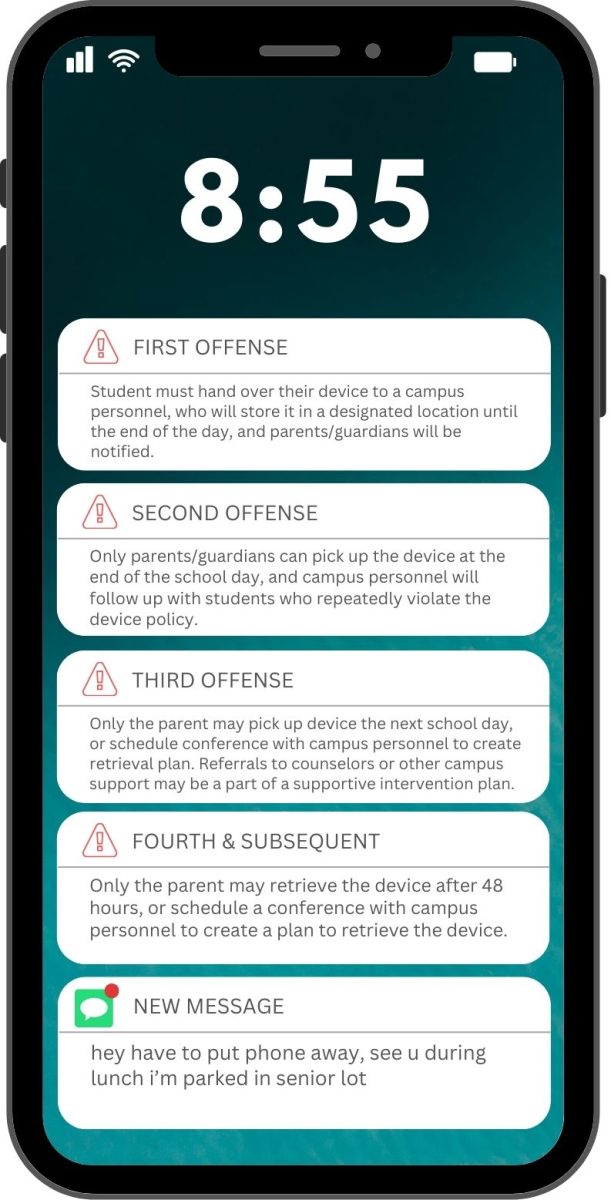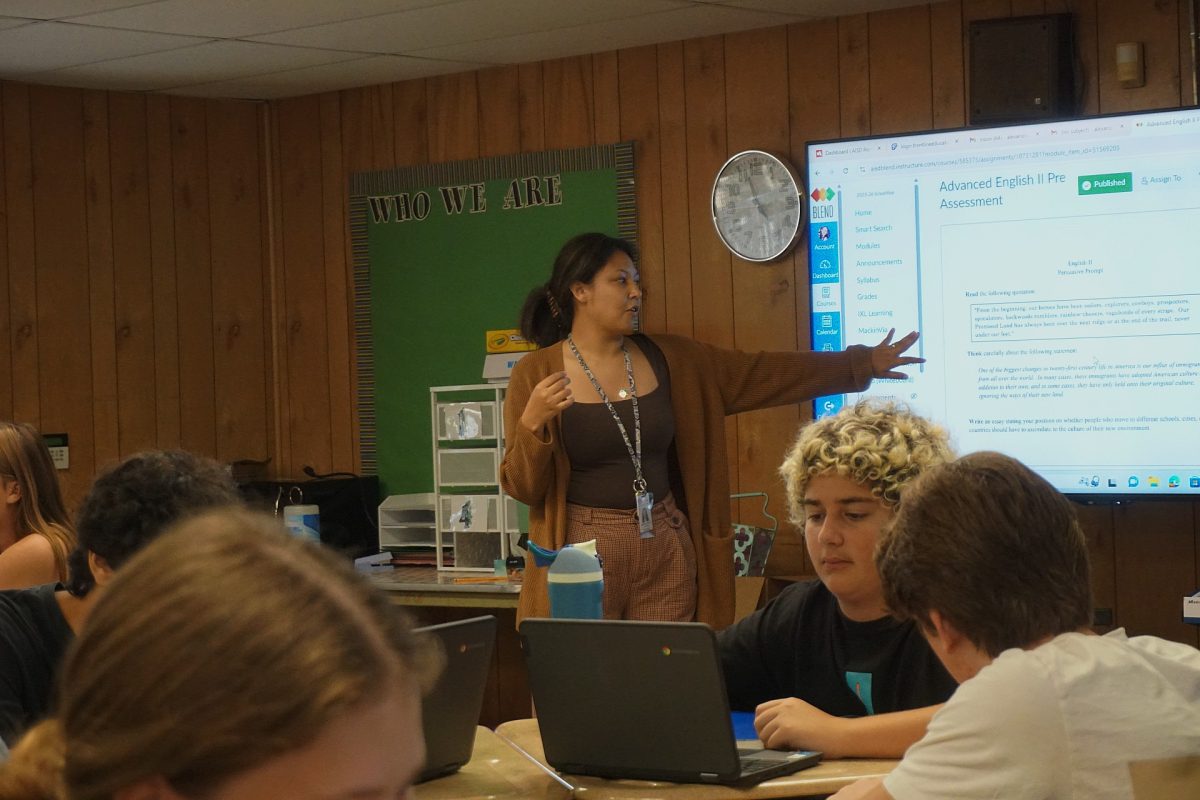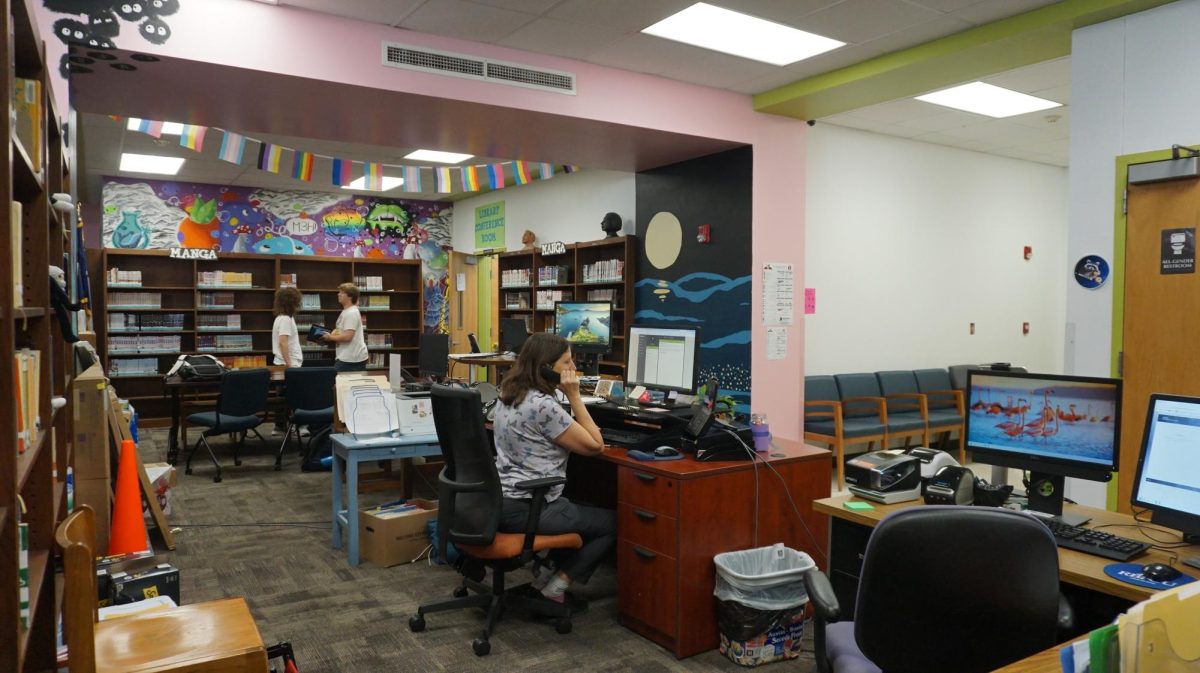Texas House Bill 1481, passed during the 89th legislative session, requires all school systems to implement a policy that prohibits the use of personal devices by students on school property during school hours. The law took effect on June 20, and school systems had to have a written policy in place by Sept. 18. The requirements by the bill include, but are not limited to; disciplinary measures for violations, exceptions for Section 504 plans and other health issues, and to be adopted by Sept. 18. To support school systems in implementing this bill, the TEA has been allocated $20 million in state grant funding.
To outline the specific measures they were going to implement under the law, AISD updated its student success guide for the 2025-2026 school year, laying the groundwork for required daily expectations and the disciplinary measures assigned to each violation by a student.
According to the guide, students must have turned their phones off before the first bell of the day rings, and have it stored in their backpacks until the final bell rings at the end of the day.
In the event of an emergency on campus, families will receive official updates directly from the school. If parents/guardians need to get in touch with their student during the school day, they can contact the school’s front office for assistance.
McCallum Principal Andy Baxa said it was difficult for him and other teachers and administrators to predict a strict bill like this coming out this school year.
“I do know AISD was looking to adopt a more strict cell phone policy coming into the school year before HB1481 was created, but I did not think it would go this far,” Baxa said.
The bill states that all school districts must adopt the policy, but leaves it up to each district to decide how to enforce it. AISD has taken the direction to be consistent across the board with every school in the district.
“Having one policy from top down makes so much more sense,” he said. “I could imagine how difficult this would have been for each individual principal to decide, and we’d all have different interpretations of what the law means.”
The phone policy at McCallum previously had been simple, according to Baxa, where phones were stored and put away during instructional time. Since Baxa has worked at McCallum since 2004, he has seen the use of phones jump around with changing times and policies.
“In 2004, phones were banned in the school throughout the day,” he said. “In 2011, that was the first thing I did in administration, was talk to my principal and say, ‘Can we stop enforcing this phone rule in the hallway?”, and he agreed with me, and that’s what started our campus relaxing the rules on phones in the hallway.”
Senior Kingsley Taylor feels frustration with having restricted device access, specifically as they have entered their senior year.
“Being an adult in the coming months and not being able to use my phone whenever I want is really frustrating,” they said. “I feel the same way about the bathroom system put in place. Both things I understand need to be implemented, but it gets overdone to an extent.”
One of the biggest things Baxa predicts teachers and students will run into is the use of phones to submit assignments or access resources during class.
“A lot of teachers have used phones as a way for homework to scan the assignment and submit it,” he said. “We’re going to have to figure out a way around. We can’t, for convenience’s sake, just overrule the law.”
As Baxa anticipated, Taylor has run into issues with not being able to access their phone to submit assignments during school hours.
“The fact that I have to wait to get home before I can turn things in is frustrating, especially for someone who’ll get distracted by other work and then forget to turn in something because they weren’t able to take a picture when it was first done,” they said.
AP and OnRamps English teacher Jennifer Wood has had to adjust her teaching and class style to accommodate this new policy. Previously, she had her students store their phones in a designated area, giving them brief moments to check them for college emails or other matters. Now, Wood feels she has reached a crossroads because she is happy with the productivity increase and engagement between her students, but can’t ensure that students aren’t accessing their phones during tests because she can’t collect them anymore.
Wood has already had to adjust her classes in the past couple of weeks for small activities and for signing up and registering for an OnRamps course.
“I have learned to pick and choose places in my own course, to use funds creatively and efficiently,” she said. “Turning in assignments that are handwritten in class, things like that, I’m trying to adjust to.”
Wood said she had hoped for a phone policy, but wanted more flexibility than HB1481 provided.
“I kind of hoped for it in some ways, but I hoped that it would be where I could have them and put them up,” she said. “Now I’m feeling concerned about cheating, and when you have 32 students in a class, you can’t watch everyone at the same time with phones.”
Taylor feels similarly, noting that this policy may drive more inadvertent uses of phones.
“I feel like the no phones just encourages kids to use up passes more, go off campus more, and skip school more rather than what it’s trying to accomplish,” they said. “The thing is that teachers already had the option to get kids to put up their phones, but now they can’t do that because it’ll be “out of their backpacks” which just leads to kids sneaking out and using phones in the bathroom.”
Both Baxa and Wood have noticed changes in social interactions, whether that be from passing periods or the classroom.
“There’s been a lot more energy in the classroom, so it’s louder but in a good way,” Wood said. “I feel like the students are talking to each other more, and I feel like there’s more engagement.”
Having already confiscated a couple of devices from students, Wood feels in a confusing position to be taking away students’ personal belongings.
“I’ve already had some difficult relationships broken, because I had to take away something,” she said. “In the past, that would have been just a warning or writing them up. Now I’ve already broken that relationship, and it feels a little severe, but I understand.”
At an AISD Board of Trustees meeting on Aug. 28, several members of the board shared their insights and additional information about this policy. Trustee Candace Hunter took into account the nuances this bill has and might have.
“I have been talking with teachers and other groups, and I think it may actually inadvertently create a hardship for districts,” Hunter said.
On a similar level, Trustee Lynn Boswell notes that if the nuances of this bill continue, steps can be taken to change certain aspects.
“There are some adjustments that will need to be made,” Boswell said. “I think it’ll be interesting to gather this statewide and find out if there are modifications that we might consider proposing as well.”









